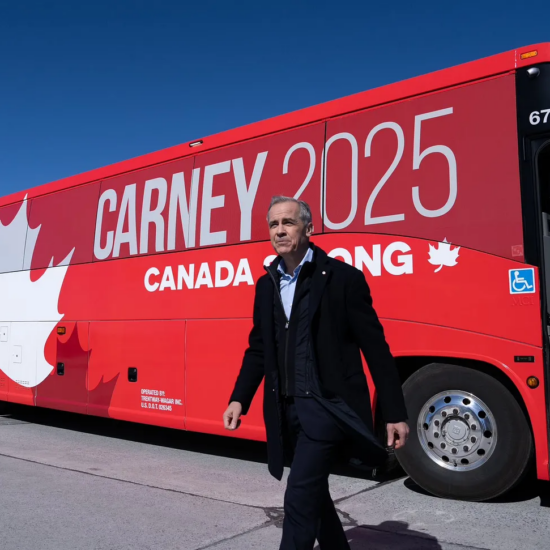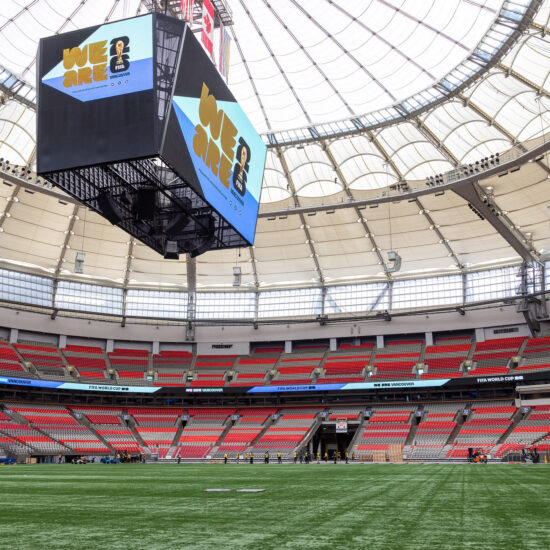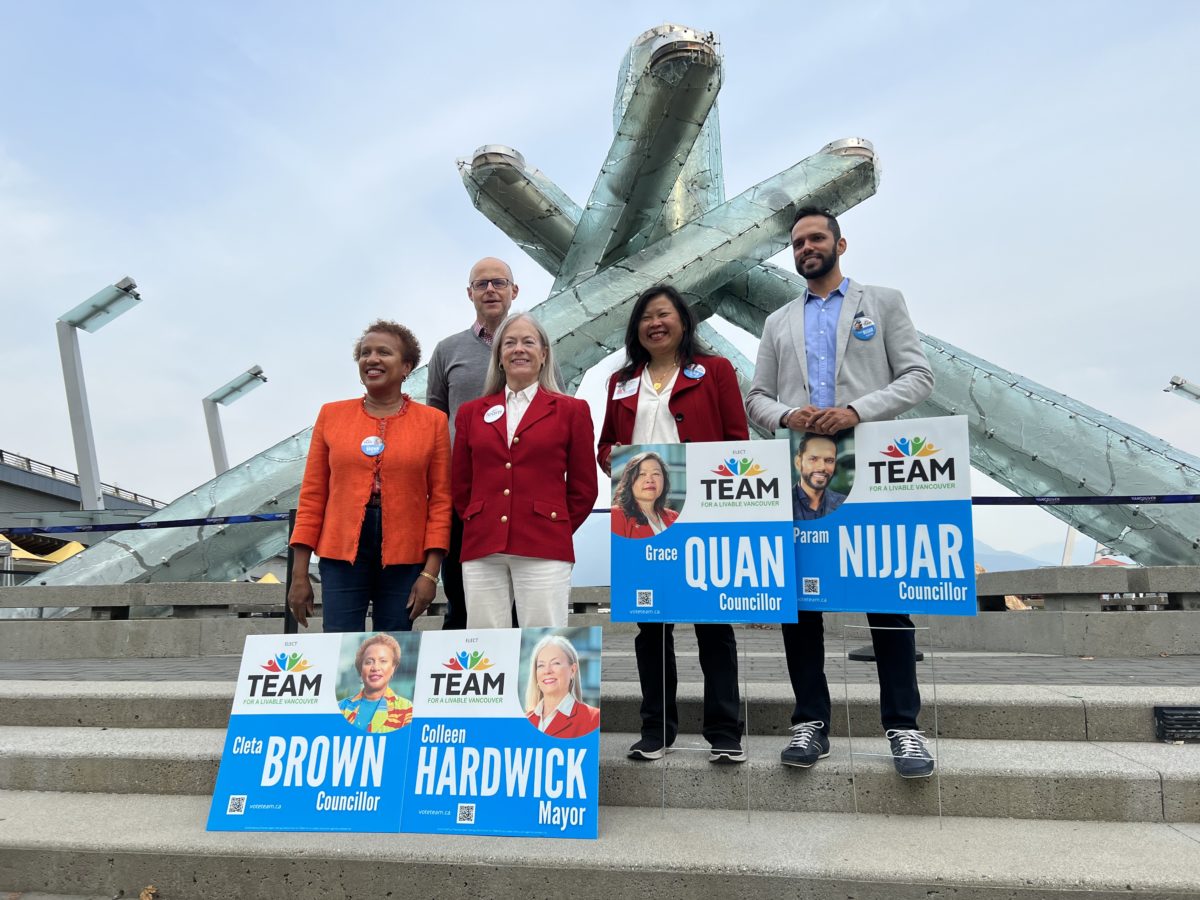
Bob Mackin
If Colleen Hardwick makes it to the top of the podium on Oct. 15 with a TEAM for a Livable Vancouver majority, she vows to give Vancouverites a say on the 2030 Winter Olympics bid.
“We did this in the lead-up to the 2010 Olympics, so why should the 2030 Olympics be any different?” mayoral candidate Hardwick said Oct. 4, in front of the Olympic cauldron at Jack Poole Plaza. “Why would we exclude Vancouverites from such a big decision, one where there’s absolutely no federal or provincial commitment at this point?”
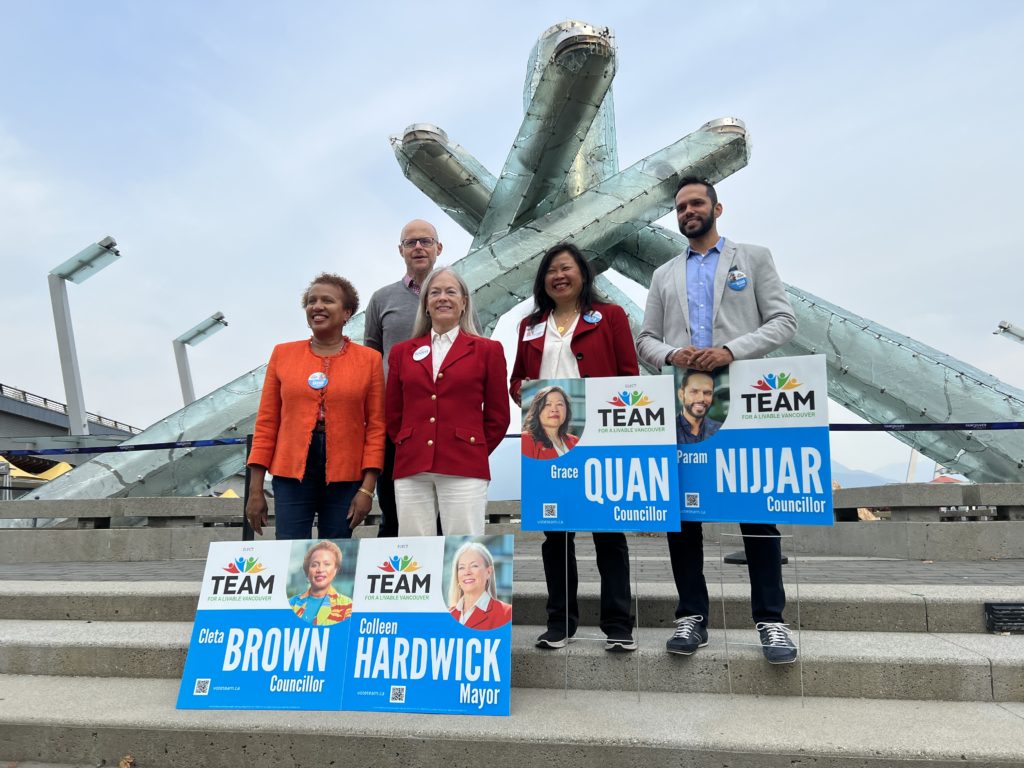
Mayoral candidate Colleen Hardwick and her TEAM team at the 2010 Olympic cauldron on Jack Poole Plaza Oct. 4. (Mackin)
Vancouver is exploring a bid against Salt Lake City, the 2002 host, and Sapporo, Japan, the 1972 host. The IOC plans to name the host next September or October during its annual meeting, which has been delayed from May 2023.
The last time there was a plebiscite on a Canadian Olympic bid, Calgary voters in 2018 rejected a proposal for the 1988 host to bid on the 2026 Games. Those are going to Milano Cortina, Italy instead.
Hardwick, however, looks to Vancouver’s 2003 precedent. After Larry Campbell led COPE to a majority in 2002, the new mayor fulfilled a promise to hold a plebiscite. In February 2003, 64% of voters supported Vancouver 2010 in principle and the IOC eventually named Vancouver the 2010 host in July 2003.
Hardwick isn’t the first politician on the 2018-elected city council to propose putting the 2030 bid to a public vote. It was actually Mayor Kennedy Stewart in February 2020, after former Vancouver 2010 CEO John Furlong hatched the idea of another Vancouver Olympics.
At the time, Stewart told reporters: “The very first thing that would need to happen, however, is that residents of Vancouver get to express their support through a referendum much like the first bid.”
Since then, Stewart made a 180-degree turn. He combined with Whistler Mayor Jack Crompton, leaders of the Musqueam, Squamish, Tsleil-Waututh and Lil’wat nations and the Canadian Olympic Committee to explore the bid.
When Hardwick proposed a plebiscite at city council meetings in April and July, Stewart was the biggest opponent. At the latter meeting, three Olympic-boosting members of Ken Sim’s ABC Vancouver party and 2010 opponents Adriane Carr (Green) and Jean Swanson (COPE) were among those who teamed-up with Stewart to reject Hardwick’s motion, which sought a plebiscite on the civic election ballot.
“Kennedy Stewart, as mayor, has completely sidelined the citizens of Vancouver, as he’s tried to push this through without consulting with the public in any meaningful way,” Hardwick said.
Not only that, but he published a series of Tweets on March 24 that accused Hardwick of undermining the bid exploration memorandum of understanding. Hardwick complained about the disinformation city hall integrity commissioner Lisa Southern, who ruled that Stewart broke the code of conduct because the agreement is not legally binding.
During Business in Vancouver’s Sept. 26 mayoral debate, Stewart reiterated his support for the bid, but indicated there remains some uncertainty.
“The nations have not yet decided whether or not they’re going to submit a bid,” Stewart said. “This is an ongoing process that I’m completely supporting because the three host nations, Musqueam, Squamish and Tsleil-Waututh, are, in my view, some of the most-important people that I talk to in the city, they’re the largest landholders in the city, and it is their territory after all.”
They are also business partners with one of the biggest fundraisers for Stewart’s Forward Together party: Rogers Arena and Vancouver Canucks owner Francesco Aquilini.
Emilio Rivero, who heads an independent Vancouver 2030 bid booster group, supports Hardwick. He said a plebiscite would demonstrate the new fourth element of the IOC’s motto: stronger, faster, higher and together.
“We find it completely incompatible that the leadership of a city would refuse to ask the taxpayers of the city, the people that live here, if they do want the Olympics back,” said Rivero, who believes a majority of Vancouverites would vote yes again.
“We believe that the economic model makes sense, that infrastructure model makes sense. But, above everything else, I think that getting the Olympics back and that spirit into Canada in this moment would just help us to be more united.”
Hardwick said the IOC’s recent decision to delay next May’s annual meeting to September or October 2023 offers a can’t-miss opportunity to ask voters.
The delay comes amid turmoil in Japan and B.C. The host country of last year’s Summer Olympics is wrestling with a corruption scandal involving former Tokyo organizing committee executives.
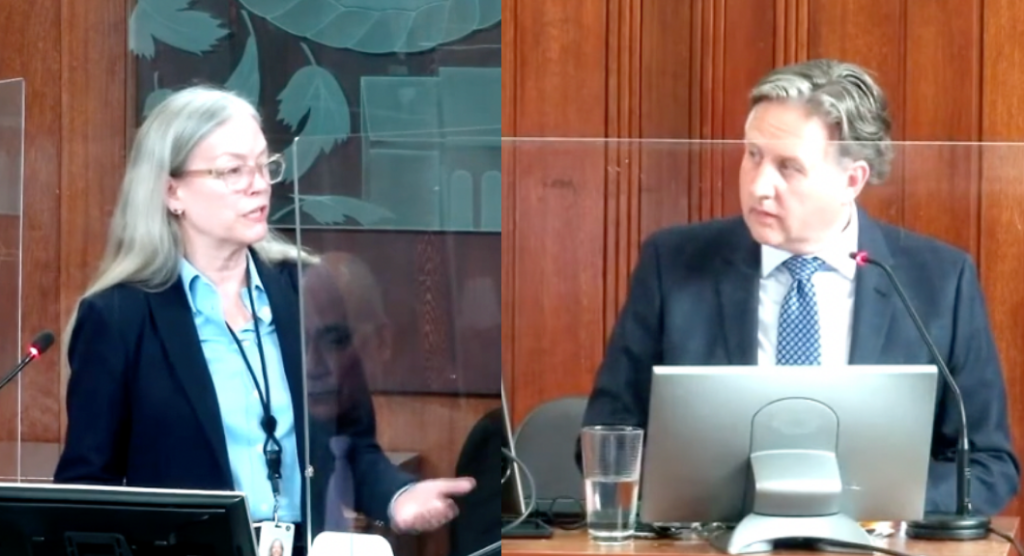
Coun. Collen Hardwick (left) and Mayor Kennedy Stewart at the April 12 city council meeting (City of Vancouver)
In B.C., new municipal councils are to be elected in Vancouver, Whistler, Richmond and Sun Peaks on Oct. 15. The COC awaits a decision later this fall from the B.C. NDP government whether it will fund another Games and cover any deficits. That government began to change at the end of September, when Minister of Tourism, Arts, Culture and Sport Melanie Mark quit cabinet for personal health reasons and handed the portfolio to her predecessor, Lisa Beare. John Horgan is in his final months as premier, awaiting either David Eby or Anjali Appadurai to take over as late as December.
The COC estimated Vancouver 2030 would cost $4 billion, including at least $1 billion from taxpayers. It proposes reusing most of the Vancouver 2010 venues in Vancouver, Richmond and Whistler, with the exception of the Agrodome for curling, Hastings Racecourse for big air skiing and snowboard jumping and Sun Peaks resort near Kamloops for snowboarding and freestyle skiing.
The 2010 Games are believed to have cost $8 billion, all-in. The true costs are unknown, because the Auditor General never did a post-Games study, the organizing committee was not subject to the freedom of information law and its board minutes and financial files won’t be open to the public at the City Archives until fall 2025.
Support theBreaker.news for as low as $2 a month on Patreon. Find out how. Click here.






